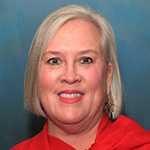Cigarette Butts: Small Items That Become Big Litter
Did you know that cigarette butts account for 88% of small litter items and more than 32% of litter in storm drains? They clutter up playgrounds and sidewalks and are expensive for city staff to clean up. The Keep America Beautiful (KAB) 2020 National Litter Study estimated that nine out of 10 littered items were 4 inches or less, with cigarette butts being the number one type of litter. The study noted that 9.7 billion cigarette butts are counted on any given day in the U.S.
Cigarette litter is toxic to the environment, wildlife, and people. According to EarthDay.org, cigarette butts are the most abundant form of plastic waste in the world, with about 4.5 trillion individual butts polluting our city streets and global environment worldwide. Butts are made primarily of plastic, not paper or cotton, and can take up to 10 years to completely degrade. Not only are they unsightly, but the chemicals also they release (including arsenic, lead, and nicotine) can remain in the environment for many more years beyond the life of the cigarette butt itself.
The KAB Cigarette Litter Prevention Program (CLPP), now in its 21st year, is the nation's largest program aimed at reducing cigarette litter and recycling cigarette butts. Communities implementing a cigarette litter prevention program consistently reduce cigarette litter by half or more based on local measurements taken in the first four to six months. Since its inception, the program has been implemented in more than 1,800 U.S. communities.
Cities can learn more and apply for 2024 CLPP grants ranging from $5,000-$20,000. Applications are due by Feb. 15.
An effective local cigarette litter prevention program includes strategies for reducing cigarette butt litter, including:
- Reviewing local litter laws to include cigarette butt litter and support enforcement (Members can contact KLC Municipal Law for assistance with ordinances);
- Raising awareness about the issue of proper cigarette butt disposal using messaging and marketing campaigns;
- Placing ash receptacles at transition points to non-smoking areas like hospitals or public parks; and
- Distributing pocket or portable ashtrays to adult smokers.
In 2024, KAB applicants will have the opportunity to focus on cigarette litter reduction through messaging, infrastructure placement, or a combination of both. They will also have the opportunity to recycle collected cigarette butts. To facilitate and increase butt recycling and ensure consistency in CLPP infrastructure deployed, grantees will be required to purchase KAB-approved receptacles. KAB will facilitate the procurement of receptacles through its partner TerraCycle and deduct receptacle costs from the cash grant provided. Further information on receptacle cost is available in the application. Grantees that recycle their butts via TerraCycle will also benefit from TerraCyle’s commitment to donating $1 per pound of cigarette waste collected from CLPP grantees. More information is available as part of the grant registration process.
Throughout the year, KAB also offers several types of community grants to its members as well as nonmember organizations (such as cities). For more information, visit the Keep America Beautiful website.


